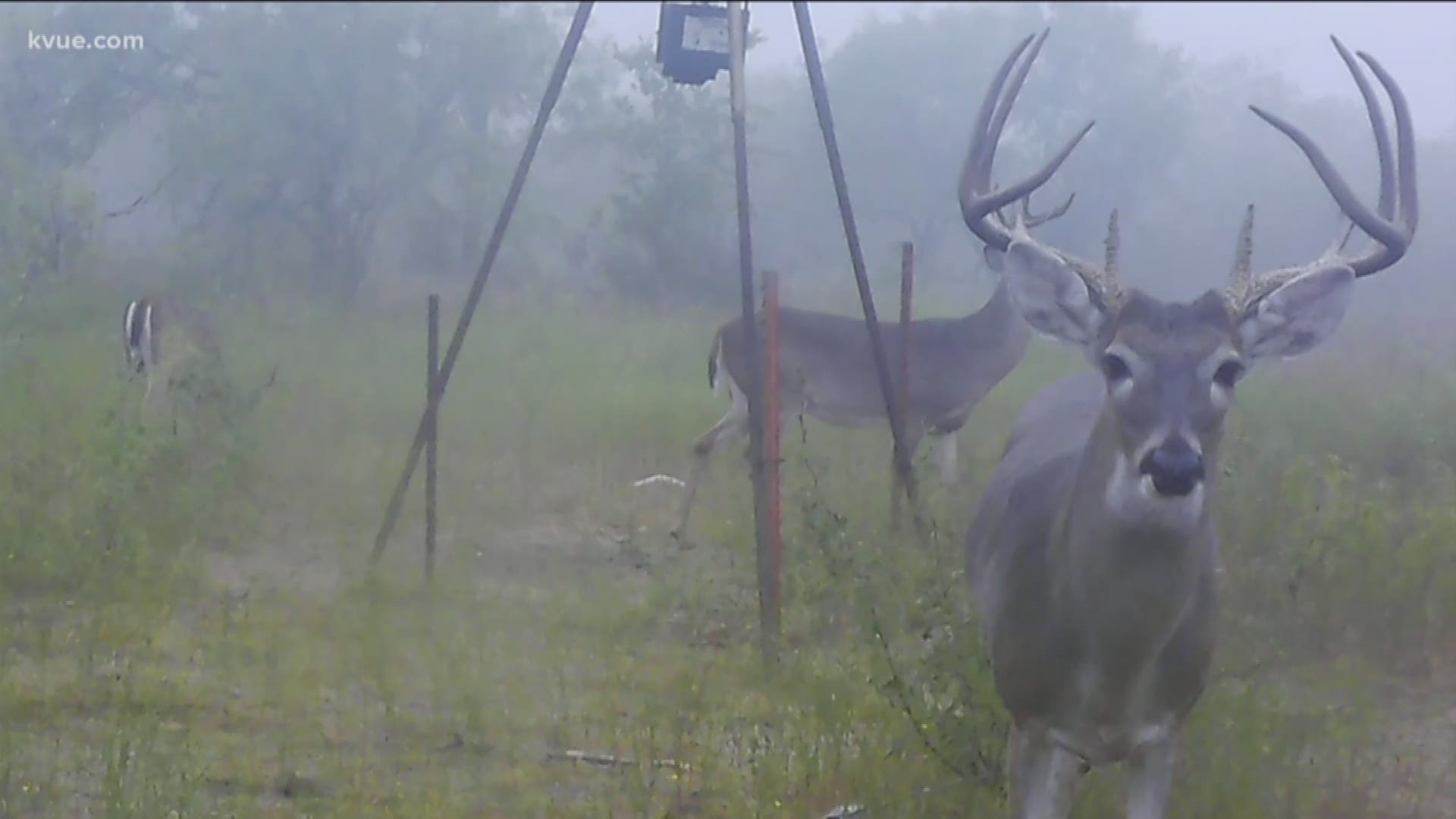AUSTIN — Deer season is underway in Texas. While it's a busy time for hunters, it's also a busy time for Texas Parks and Wildlife Law Enforcement.
That's because Texas Game Wardens are keeping an eye out for hunting violations, and taking calls from landowners about people trespassing on hunting ranches and leases.
"Throughout the whole state, we as game wardens get calls of people trespassing constantly. This time of year during hunting season, it's more prevalent because you got more people being on their properties, especially absentee landowners. You've got hunting lease guys noticing more," said Lt. Jason Jones, a TPWD Game Warden. "With the hunting season going on, that's when we do see an influx of calls regarding hunting without landowner consent or trespassing calls."
From cutting fences, cutting locks, to maneuvering around gates, the ways in which someone can break into these properties vary, as do the penalties, depending on what all damage the person has left. In some serious cases, wild game is illegally harvested.
"The evidence that we get, through our investigation, there may be evidence of blood; the shell case is left there," explained Jones. "Class C is your typical ticket -- a $25 to $2,500 dollar violation. Class B is a $200 to $2,000 violation, up to 288 days in jail, and it goes higher from there. A felony, you know, you're looking at two to 10 years possible in jail. So those are your higher charges where you're hunting without landowner consent with one of our big game animals."
Jones said that the number of people hunting without a license is also an issue game wardens are having to tackle.
"A hunting license is required in the state of Texas to hunt. Over the last three years, we've had a violation of over 1,200 (1231) documented hunting-without-license cases, and so, that's still significantly high," said Jones. "They're thinking they're not getting caught. They're just using someone else's tags to tag a deer. They're stealing the people's resources. The animals belong to the state of Texas."
On a ranch in Caldwell County, Andrew Myers is a wildlife consultant, outfitter and a hunter himself. From every track and tree, he knows the land well and can tell when someone should not be there. He says he has had to deal with someone trespassing on the property once before but knows of others who haven't been so lucky.
"It's a difficult situation because you put so much effort in improving habitats and kind of fostering growth of these wild animals, and somebody feels like they can come in and take it from you or come in and take your property," said Myers. "Even if somebody breaks into your house, the first thing you think about is your personal safety. That's what you start to worry about, but then you start to think about what kind of damages are done or what actual monetary cost you're going to take from this person coming in. So definitely, it shakes you."
Although frustrating, Myers said there are ways to prevent it from happening and steps to take to better protect your land. One simple way is by keeping up with the digital age.
"We've changed our locks. We have controlled access at the roadways. We have big gates that we alter the combos or change the keys," said Myers. "You can use wildlife trail cameras -- not necessarily place them in obvious places like feeders, feed pens or blinds -- but get road crossings, fence lines and things that people don't think to."
From his trail cameras, Myers shared photos of coyote turf wars, turkeys, white-tailed deer, and people. He highly recommends fellow hunters and landowners install them around their properties to keep an extra set of eyes when they can't physically be around.
"It's definitely helping. And as things evolve, the price of this equipment is also going down."
With exact documentation, the cameras can help TPWD Game Wardens track down trespassers and even poachers.
"If it's poaching related to white-tailed deer, this is when the deer are mature. Antler-wise, you're going to have harder antlers. That's typically the poacher that's not out after the meat. That's what you'll typically find: everything but the meat or the antlers," said Myers. "You won't want to contaminate the scene, but document it though."
That's the moment when you need to contact your local game warden. Both Myers and Lt. Jones advised that property owners who come across evidence of poaching, vandalism, or property damage should not try to take matters into their own hands for safety purposes.
"That's what we're here for. That's the job of a Texas game warden. We encourage them to get as much detail about the individual or vehicle direction of travel, what they're doing, and then call us," said Jones.
Across the state of Texas, there are 551 game wardens who rely on landowner-game warden relationships. Jones and Myers said keeping an open line of communication is key for both groups.
"Know your game warden. Contact your game warden on a regular basis. Get to know them," said Myers. He also advised building relationships with your surrounding property owners and joining wildlife groups, such as the Tri-Community Wildlife Management Association, which he said he's a member of.
The contact information for area game wardens is easily accessible for ranch and property owners. To look up the best way to get in touch with the game warden in your area, click here.
To report a hunting violation, you can also contact the TPWD Operation Game Thief line at 1-800-792-4263.

